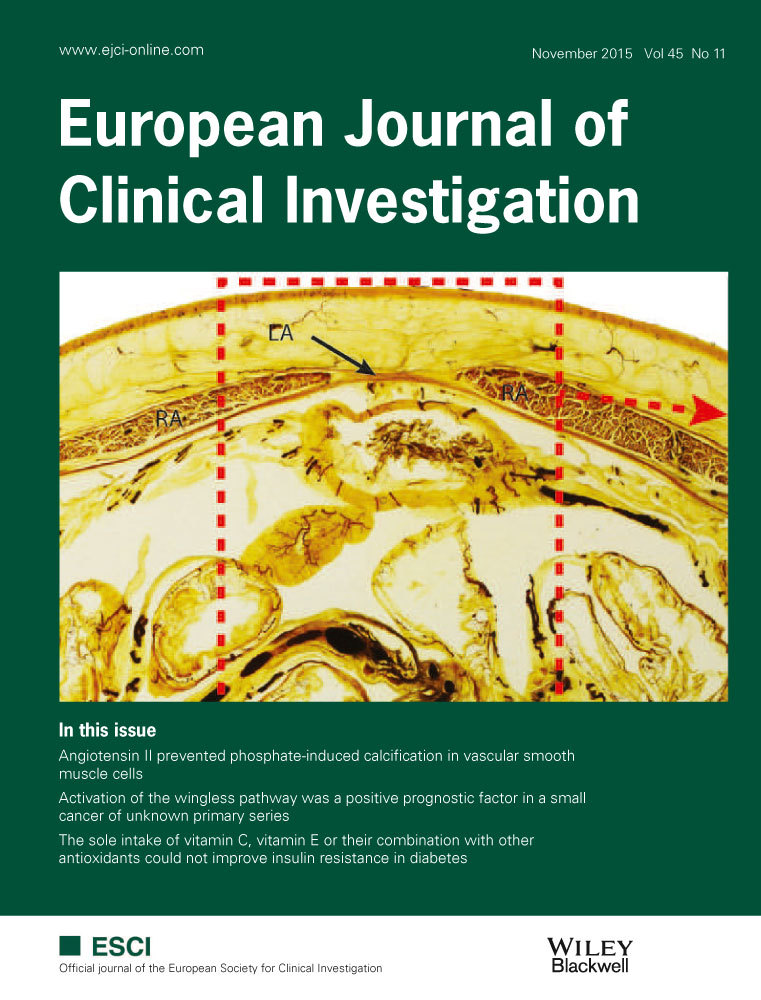Prognostic significance of WNT and hedgehog pathway activation markers in cancer of unknown primary
Abstract
Background
Cancer of unknown primary (CUP) possesses distinct biology and peculiar natural history, in which the roles of the winged and hedgehog signalling pathways are unclear.
Materials and methods
We constructed tissue microarrays and studied the immunohistochemical (IHC) expression of β-catenin, smoothened (SMO) and the transcription factors TCF, LEF, GLI1 in 87 CUP cases for prognostic significance.
Results
A low rate of IHC expression of proteins was seen, the cut-off used being any expression in ≥ 1% of tumour cells. At univariate analysis, only nuclear IHC SMO expression displayed a statistically significant association with favourable outcome [median Overall survival (OS) of 19 months in SMO-positive vs. 12 months in SMO-negative cases, P = 0·01]. An activated Wnt pathway, defined as IHC expression of any of nuclear β-catenin, TCF and LEF, was significantly associated with favourable progression free survival (median 9 vs. 5 months, P = 0·037) and OS (median 19 vs. 13 months, P = 0·04). This prognostic impact on OS was mainly driven by nuclear expression of TCF and/or LEF (P = 0·03). No prognostic significance of the hedgehog pathway activation status, defined as IHC expression of SMO or nuclear GLI1, could be established. A favourable prognostic impact of the concurrent activation of both pathways was observed. A trend for association of activated Wnt with response to chemotherapy (responders 67% among activated Wnt cases vs. 35% among nonactivated Wnt cases, P = 0·07) was observed in CUP adenocarcinomas.
Conclusions
Activation of the Wnt pathway was a positive prognostic factor in a small CUP series, possibly via enhanced chemosensitivity. Independent validation is warranted.




